Women’s Health Myths You Should Stop Believing
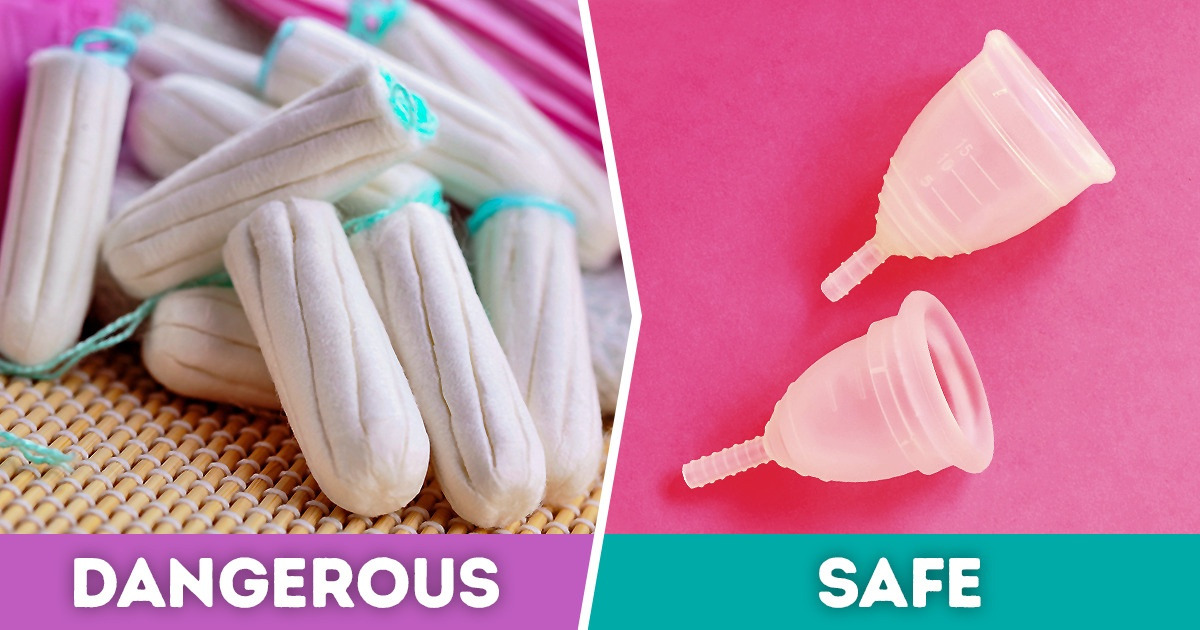
Women’s health is a very delicate matter. Some areas may cause a lot of questions, and people tend to believe many superstitions about them, which have nothing to do with reality.
5-Minute Crafts would like to tell you about women’s health myths some of us continue to believe, but shouldn’t.
❗ Important: This article is for information purposes only and can’t replace professional assistance.
Myth 1: You can’t exercise during your period.
Exercise is often the last thing on our minds when we’re on our period. However, it was proved that light exercise could alleviate many symptoms, including pain, cramps, bloating, mood swings, and fatigue.
Myth 2: You can’t swim during your period.
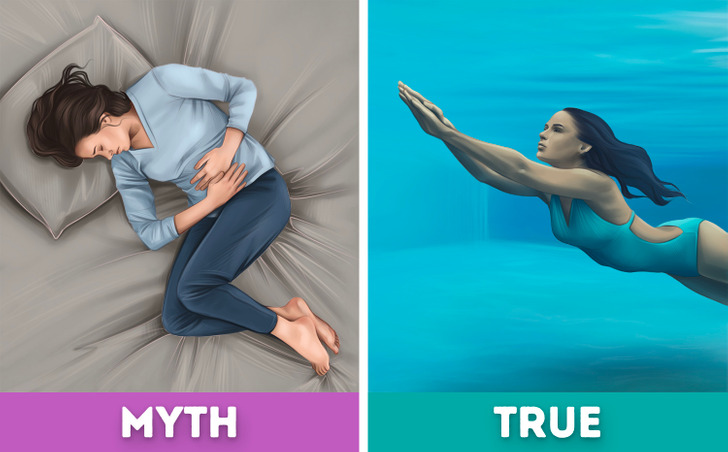
Swimming during your period is safe and good for your health. It can alleviate the pain and fatigue that many women feel during this time. Gentle non-swimming aquatic exercise was also proved to reduce period pain.
Myth 3: Slow metabolism is the reason of excess weight.
Metabolism is indeed linked to weight. However, it is rarely the reason why you gain those extra pounds. Our metabolism influences our body’s basic energy needs, while our weight depends on our genetic makeup, hormonal controls, diet, and physical activity.
Myth 4: You have to consume twice as many calories when you’re pregnant.
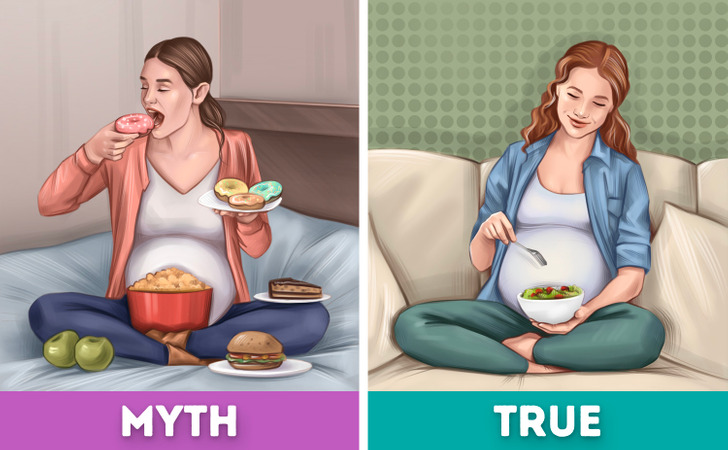
During pregnancy, some women begin to eat much more than usual, thinking it’s good for the baby. However, extra pounds gained during pregnancy can be risky for the health of both mother and fetus.
It’s best to gradually increase the consumption of calories as the baby grows. So, experts recommend not to consume extra calories in the first trimester. In the second trimester, you can add 340 extra calories per day, and in the third trimester, you can add 450 extra calories. At the same time, the total calorie content of your diet should not exceed 2,200-2,900 calories per day, and extra calories should come from healthy foods such as vegetables, fruits, whole grains, lean proteins, and dairy products.
Myth 5: Wearing an underwire bra may cause breast cancer.
Some time ago, it was suggested that prolonged wearing of a bra could restrict the lymph system and cause the accumulation of toxins in the breasts. Today, however, experts consider this theory far-fetched. They say there is no evidence that wearing a bra harms breast health. Also, there is no proof that not wearing a bra reduces the risk of cancer.
Myth 6: Only overweight women have cellulite.
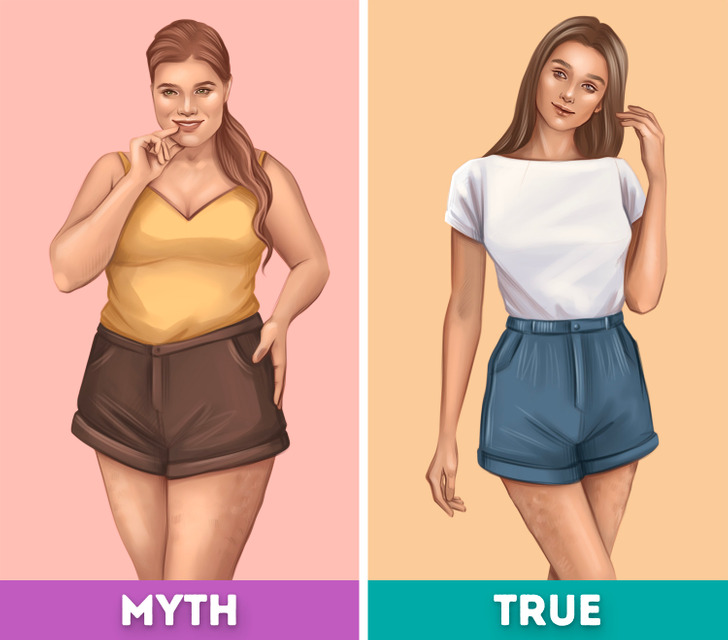
Actually, both overweight and thin women can have cellulite. The likelihood of its development is determined by heredity, sedentary lifestyle, unhealthy diet, and bad habits.
Myth 7: Stretch marks appear as a result of gaining weight and disappear after losing weight.
Weight gain is not the only reason why stretch marks appear on your body. They can also occur during pregnancy when a woman’s skin is under a lot of tension, or after a growth spurt, like during puberty.
Since stretch marks are small scars that result from the rupture of collagen and elastin fibers in the skin, their appearance is irreversible. They may even become more noticeable after significant weight loss.
Myth 8: Ultrasounds may harm a baby if done during pregnancy.
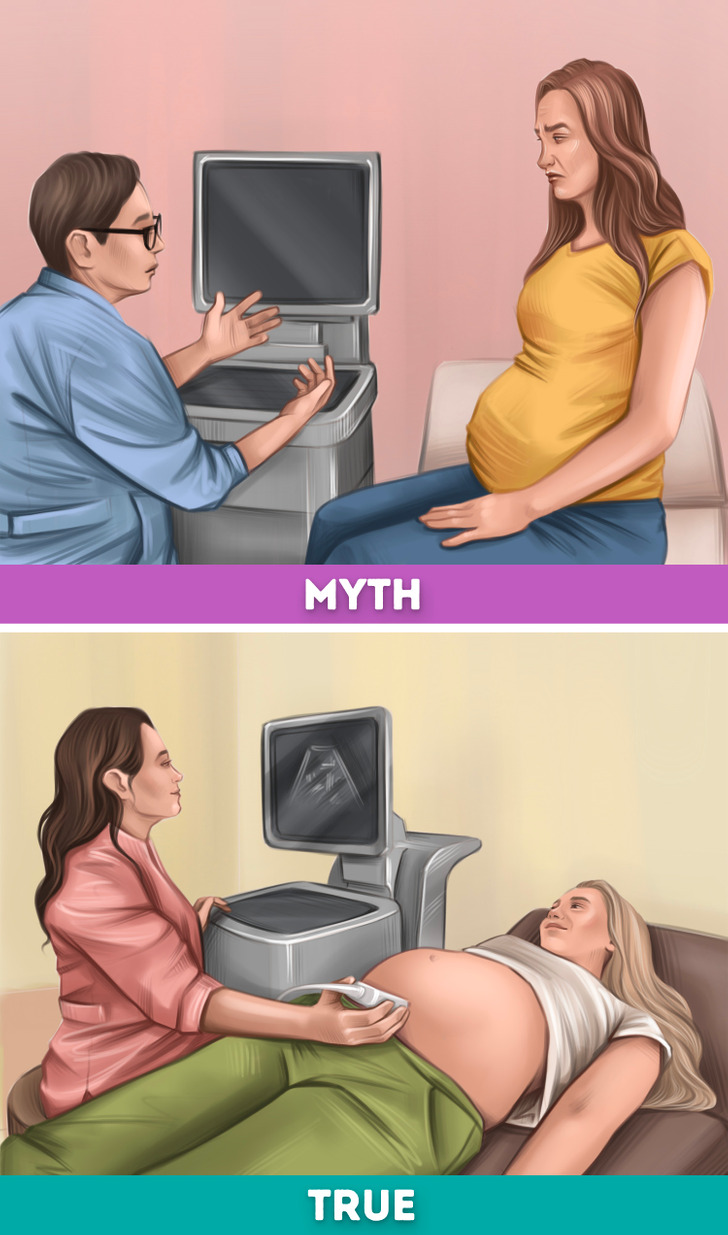
Some pregnant women are afraid to do an ultrasound because they believe that its effect is similar to an X-ray’s. However, this assumption is far from reality. Unlike X-ray imaging, there is no ionizing radiation in ultrasound, so it doesn’t carry the same risks as an X-ray.
At the same time, ultrasound diagnostics can be very useful for mother and baby, and in some cases, it is simply necessary. With its help, a specialist can see how the pregnancy develops and confirm if the fetus is growing normally.
Myth 9: Period pain can’t be relieved; you just have to endure it.
Myth 10: You can sleep with a tampon in for the entire night.
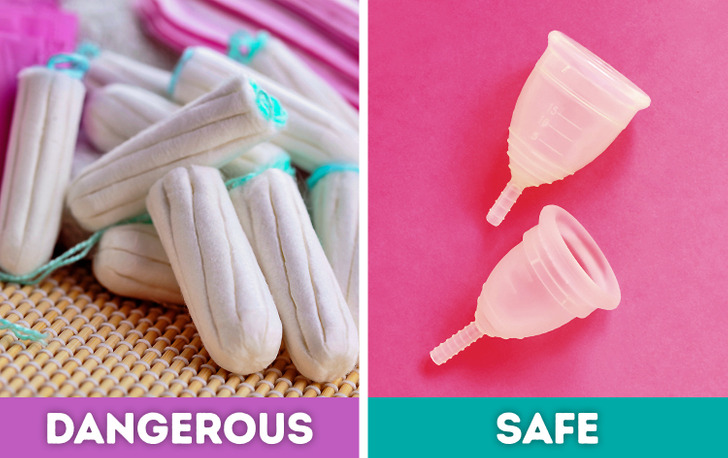
Experts and manufacturers of feminine hygiene products strongly recommend changing tampons every 4-8 hours. In particular, this must be done to minimize the likelihood of toxic shock syndrome, a potentially deadly disease. Sleeping with a tampon all night is not a good idea. Pads or menstrual cup are the best alternative in this case.